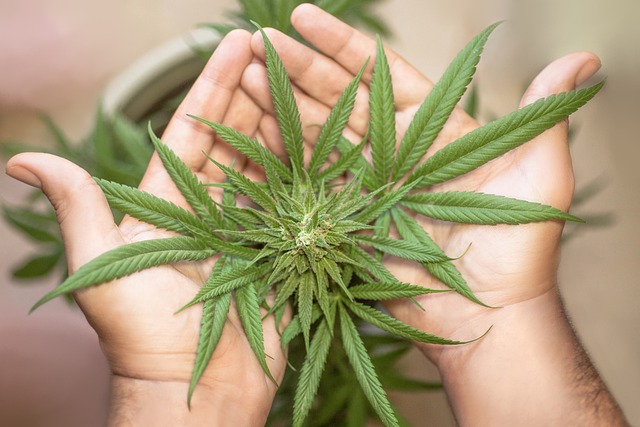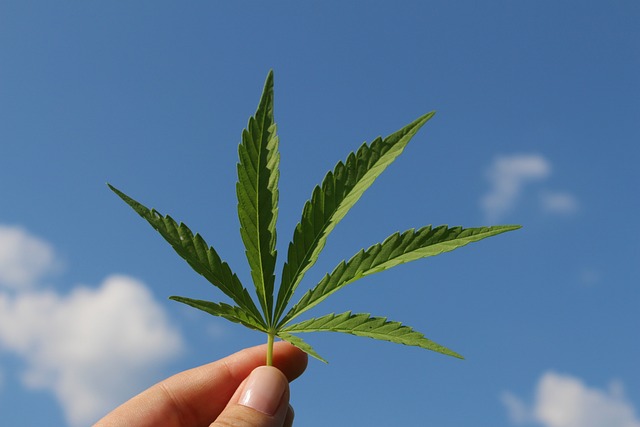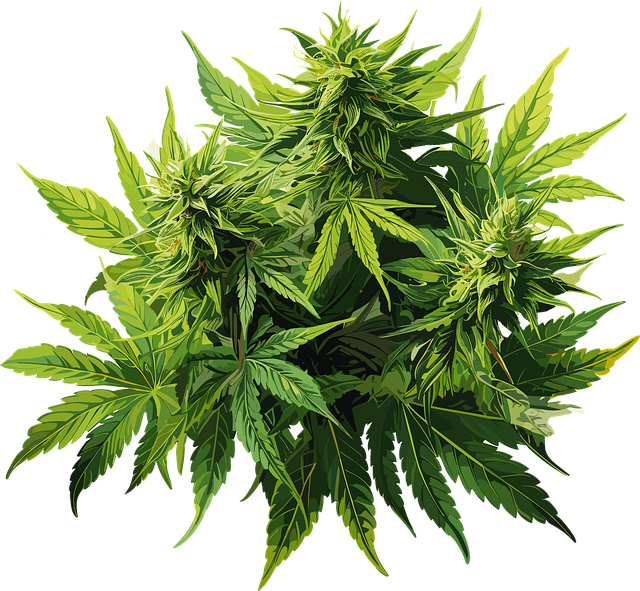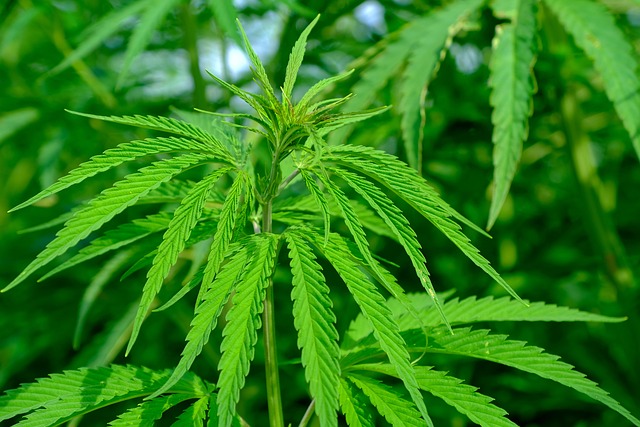In Texas, the legality of THCA (Tetrahydrocannabinolic Acid), a non-psychoactive cannabinoid and precursor to THC, is currently ambiguous. The 2018 Farm Bill legalized THCA, but this conflicts with Texas state laws that specifically regulate THC through the Compassionate Use Program for medical purposes. As a result, THCA's status as a legal substance in Texas remains uncertain, with different interpretations from law enforcement and legal experts leading to varied judicial outcomes. The Compassionate Use Act of 2015 allows for the use of low-THC cannabis products derived from THCA under strict medical conditions, but does not explicitly address THCA flower. This leaves consumers and patients in a complex situation where they must navigate conflicting federal and state regulations, particularly if they are interested in THCA's therapeutic potential, which includes anti-inflammatory effects and relief from pain, nausea, and anxiety. It is crucial for those in Texas to stay informed about legislative changes as both state and federal laws continue to evolve regarding the use of THCA, with a focus on its legal standing within medical contexts.
Theta-9-carboxylic acid (THCA) flower has emerged as a topic of significant interest due to its potential health benefits and complex legal standing. As we delve into the effects of THCA flower, it’s crucial to understand its status under Texas law. This article illuminates the intricacies surrounding “THCA legal in Texas” and the broader implications for consumers. We will explore the various facets of THCA flower consumption, from its medicinal properties to the health considerations one must bear in mind. With a focus on “Navigating the Health Impact of THCA Flower: Side Effects and Safe Usage,” this comprehensive overview aims to equip readers with the knowledge necessary for informed decision-making about its role in their wellness routine, particularly within the Texas context.
- Exploring the Legal Status of THCA Flower in Texas: Implications and Considerations
- Understanding the Potential Effects of THCA Flower Consumption: A Comprehensive Overview
- Navigating the Health Impact of THCA Flower: Side Effects and Safe Usage
- THCA Flower's Role in Texas: Legality, Medical Benefits, and Consumer Responsibilities
Exploring the Legal Status of THCA Flower in Texas: Implications and Considerations

In recent years, the conversation surrounding the legal status of THCA flower, a non-psychoactive precursor to delta-9 tetrahydrocannabinol (THC), has gained traction in Texas. The Texas Compassionate Use Program, established by House Bill 3703 during the 84th Legislative Session, legalized the use of low-THC cannabis for medical purposes under certain conditions. However, this legislation specifically addressed THC and did not explicitly mention THCA. As a result, the legal status of THCA flower in Texas remains a nuanced issue. Advocates argue that because THCA is a legal compound when derived from hemp under the 2018 Farm Bill, it should be permissible within the state’s borders. Conversely, Texas law enforcement and legal experts have offered varied interpretations, with some viewing THCA as a precursor to THC, which remains a controlled substance in Texas unless prescribed for medical use under the Compassionate Use Program. This ambiguity has led to mixed outcomes in cases involving THCA flower, highlighting the need for clear legislative clarification. Stakeholders are encouraged to closely monitor legal developments as state and federal laws continue to evolve in this dynamic area of law. Those interested in the therapeutic properties attributed to THCA should stay informed about any updates or changes to Texas statutes that could impact the legality of THCA flower possession, sale, and use within the state.
Understanding the Potential Effects of THCA Flower Consumption: A Comprehensive Overview

THCA, or tetrahydrocannabinolic acid, is a non-psychoactive cannabinoid found in the Cannabis sativa plant and is considered the precursor to THC, its psychoactive counterpart. When discussing THCA flower consumption, particularly within the context of its legality in Texas, it’s important to approach the subject with a comprehensive understanding of its potential effects. In Texas, where the possession and use of cannabis products are regulated, THCA flowers fall into a gray area; while THC is legal for medical use under certain conditions, THCA’s legal status can vary depending on local regulations.
Consumption of THCA flower may lead to various effects that differ from those of its decarboxylated form, THC. Users have reported potential benefits such as anti-inflammatory properties, pain relief, and a reduction in nausea and anxiety. It’s also noted for its lack of psychoactive effects at lower doses, making it an attractive option for those seeking therapeutic benefits without the ‘high’ associated with THC. However, it’s crucial for consumers to be aware that the effects of THCA can be influenced by factors such as dosage, individual body chemistry, and specific strains of cannabis. As research continues to evolve, the understanding of THCA’s therapeutic potential and its legal status in states like Texas becomes more nuanced. Users considering THCA flower consumption should consult with healthcare professionals and stay informed about the evolving regulatory landscape.
Navigating the Health Impact of THCA Flower: Side Effects and Safe Usage

Navigating the health impact of THCA flower requires a comprehensive understanding of its side effects and safe usage, particularly as its legal status in Texas evolves. THCA, or tetrahydrocannabinolic acid, is a non-psychoactive cannabinoid found in hemp and cannabis plants. While it’s recognized for its potential therapeutic benefits, users should be aware of the possible side effects associated with its consumption. Common side effects may include dry mouth and eyes, mild anxiety or paranoia, and occasional drowsiness, which typically subside as the user becomes accustomed to the substance. It’s crucial for individuals considering THCA flower to start with a low dosage to gauge their body’s response and to consult with healthcare professionals, especially if they have pre-existing health conditions or are taking other medications. The legal landscape in Texas regarding THCA is subject to change, so users must verify its current status within their specific jurisdiction. As of the knowledge cutoff date, THC, including its acidic form THCA, is legal in Texas under certain conditions, primarily for medical use with a valid prescription. Users should adhere to state regulations and dosing guidelines to mitigate potential risks and maximize the therapeutic benefits of THCA flower responsibly.
THCA Flower's Role in Texas: Legality, Medical Benefits, and Consumer Responsibilities

In Texas, the legal status of THCA flower has been a topic of discussion due to its non-psychoactive nature and potential medical benefits. As per the Texas Compassionate Use Act passed in 2015, THCA is considered a cannabinoid with legal restrictions for use as a medical treatment. Patients registered in the state’s Compassionate Use Registry may access low-THC cannabis products that are legally produced in licensed facilities. The THCA found in these products must contain no more than 0.5% THC, ensuring it does not have psychoactive effects while still providing potential relief for conditions such as epilepsy and multiple sclerosis. Consumers in Texas have a responsibility to adhere to the state’s regulations regarding the purchase, possession, and use of THCA flower. It is crucial for users to procure products from legitimate sources within the program to ensure they are using a product that is safe and legal. The role of THCA flower in Texas is multifaceted, encompassing its position within the state’s medical cannabis program, its legal framework, and the consumer’s duty to navigate these regulations responsibly. As THCA legal in Texas continues to evolve, stakeholders including patients, healthcare providers, and policymakers must remain informed and engaged to ensure the safe and compassionate use of this compound for therapeutic purposes.
In conclusion, the emergence of THCA flower as a subject of interest within the legal landscape of Texas presents a multifaceted discussion with significant implications for consumers. As outlined in this article, the legal standing of THCA flower in Texas requires careful attention and adherence to state regulations to ensure safe and compliant use. The potential effects of THCA flower consumption are varied and should be approached with informed understanding, as highlighted in our comprehensive overview. Consumers must be aware of the health impacts, including side effects, and use the substance responsibly. The balance between accessibility, medical benefits, and consumer safety is crucial in shaping the role of THCA flower in Texas. It is imperative for individuals to stay informed on the latest developments and legal standings to navigate this evolving area effectively and prudently.
